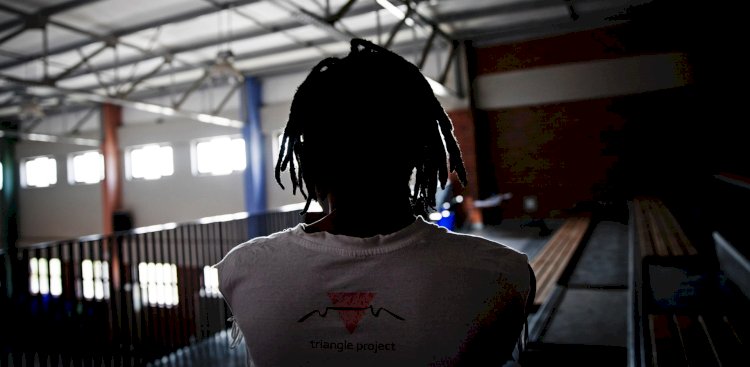Nigerian Woman Put up for Sale in Lebanon Refuses to Return Home
She insists on staying in Lebanon because she has found another job

The Nigerian woman who was advertised for sale on Facebook in Lebanon has refused to return home, according to the head of Nigeria's diaspora commission.
The woman was being sold for $1,000 (£793). She was rescued by the Lebanese authorities and taken to the Nigerian embassy in Beirut.

The advert caused an outcry in Nigeria and the man suspected of involvement in the advert was arrested.
The 30-year-old woman now says she has found another job in Lebanon.
READ ALSO:
50 Trafficked Nigerian Women Rescued from Lebanon
Head of the commission Abike Dabiri-Erewa said she tried to convince to return home home but she refused.
"Even the Secretary to the State Government (SSG) of Oyo State, where she is from, spoke to her. We just hope that Nigerians going to work in Lebanon will be properly treated and not treated as slaves," Ms Dabiri-Erewa said.
She said the Lebanese government had brought back 69 out of 79 Nigerians who were in Lebanon. The 69 are currently in quarantine.
The Lebanese embassy stopped issuing visas to Nigerians seeking domestic work in Lebanon after the incident.
'Modern-day slavery'
Some 250,000 migrant domestic workers - most from sub-Saharan African countries such as Ethiopia and Ghana, and Southeast Asian countries including Nepal and the Philippines - reside in Lebanon.
Domestic workers in Lebanon are legally bound to their employers through the country's notorious kafala system, which only allows them to end their contracts with the consent of employers.
The system has led to widespread abuse, ranging from the withholding of wages, to physical and sexual assault. Camille Abousleiman, Lebanon's former labour minister, has called it "modern-day slavery".
While Lebanon's Ministry of Labour says it is working to improve protection for domestic workers by amending the contract between them and their employers, experts say the abuse will continue until the kafala system is entirely abolished.
"Adopting a revised contract which addresses shortcomings is undoubtedly a step forward, but it's not enough," Diala Haidar, a Lebanon campaigner at Amnesty International, told Al Jazeera.
"The Lebanese labour law explicitly excludes domestic workers from labour protections enjoyed by other workers such as minimum wage, overtime pay, compensation for unfair dismissal, and social security. The labour law needs to be amended to recognise domestic workers as workers and grant them full labour protections," she said.
General Security had said in 2017 that two domestic workers die every week in Lebanon. Videos often circulate of domestic workers trying to escape the homes of their employers by climbing down high buildings. Frequently, they are found dead.
Last month, the body of 23-year-old Ghanaian domestic worker Faustina Tay was found in a parking lot under the fourth-storey apartment of her employers. In the days leading up to her death, Tay had alleged repeated abuse by her employer and the agent who brought her to Lebanon and said she feared her life was in danger.
The employer has since been blacklisted, meaning he cannot hire any more domestic workers, while a criminal investigation is ongoing. The high-profile case, first reported by Al Jazeera, shed light on the conditions migrant workers face in Lebanon.
SOURCE: BBC






































